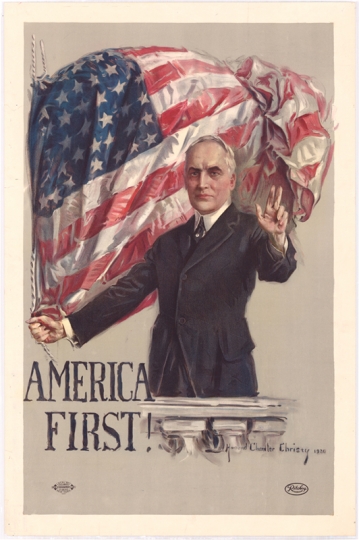- Unique U.S. Tourism Revenue Decline: The U.S. is the only major global economy projected to see a significant drop in tourism revenue in 2025, with an expected loss exceeding $12.5 billion.
- Impact of “America First” Policies: Stricter immigration controls and a perceived unwelcoming stance linked to “America First” policies are cited as primary drivers for this decline, deterring international visitors.
- Significant Economic Risk: The downturn threatens the U.S.’s largest-in-the-world tourism sector, which contributes significantly to GDP (9%), supports 20 million jobs, and generates substantial tax revenue.
- Call for Policy Reconsideration: Industry experts are urging U.S. policymakers to revise travel and immigration policies to restore the nation’s image as a welcoming destination and mitigate further economic losses.
This is not the first time an “America First” movement has happened, as we see in the archive photos accompanying this post.

The United States is uniquely projected to face a significant decline in tourism revenue in 2025, a stark contrast to other major global economies that anticipate growth or stability in this sector. According to a new analysis by the World Travel & Tourism Council (WTTC) and Oxford Economics, the U.S. tourism industry is expected to lose over $12.5 billion in revenue this year alone, with tourist spending forecasted to fall below $169 billion. This represents a 7% decrease from 2024 and a staggering 22% drop from pre-pandemic 2019 levels.

Industry experts largely attribute this downturn to the current administration’s “America First” policies, characterized by stricter immigration controls and a rhetoric perceived internationally as less welcoming. This has negatively altered global perceptions of the U.S. as a travel destination, leading potential tourists to choose more hospitable alternatives. The decline poses a serious threat to a vital economic sector that is the largest worldwide, valued at nearly $2.6 trillion and contributing 9% to the U.S. GDP. The U.S. tourism sector supports an estimated 20 million jobs and generates approximately $585 billion annually in tax revenues.

The repercussions extend beyond direct financial losses, impacting ancillary industries like retail and hospitality, and potentially diminishing U.S. cultural exchange and soft power. While other nations are capitalizing on a rebounding global travel market with tourism-friendly policies, the U.S. risks losing its competitive edge. Industry leaders are urging policymakers to reconsider current travel and immigration policies, emphasizing the need to re-establish a welcoming environment and streamline visa processes to revitalize the sector and prevent long-term economic damage.

